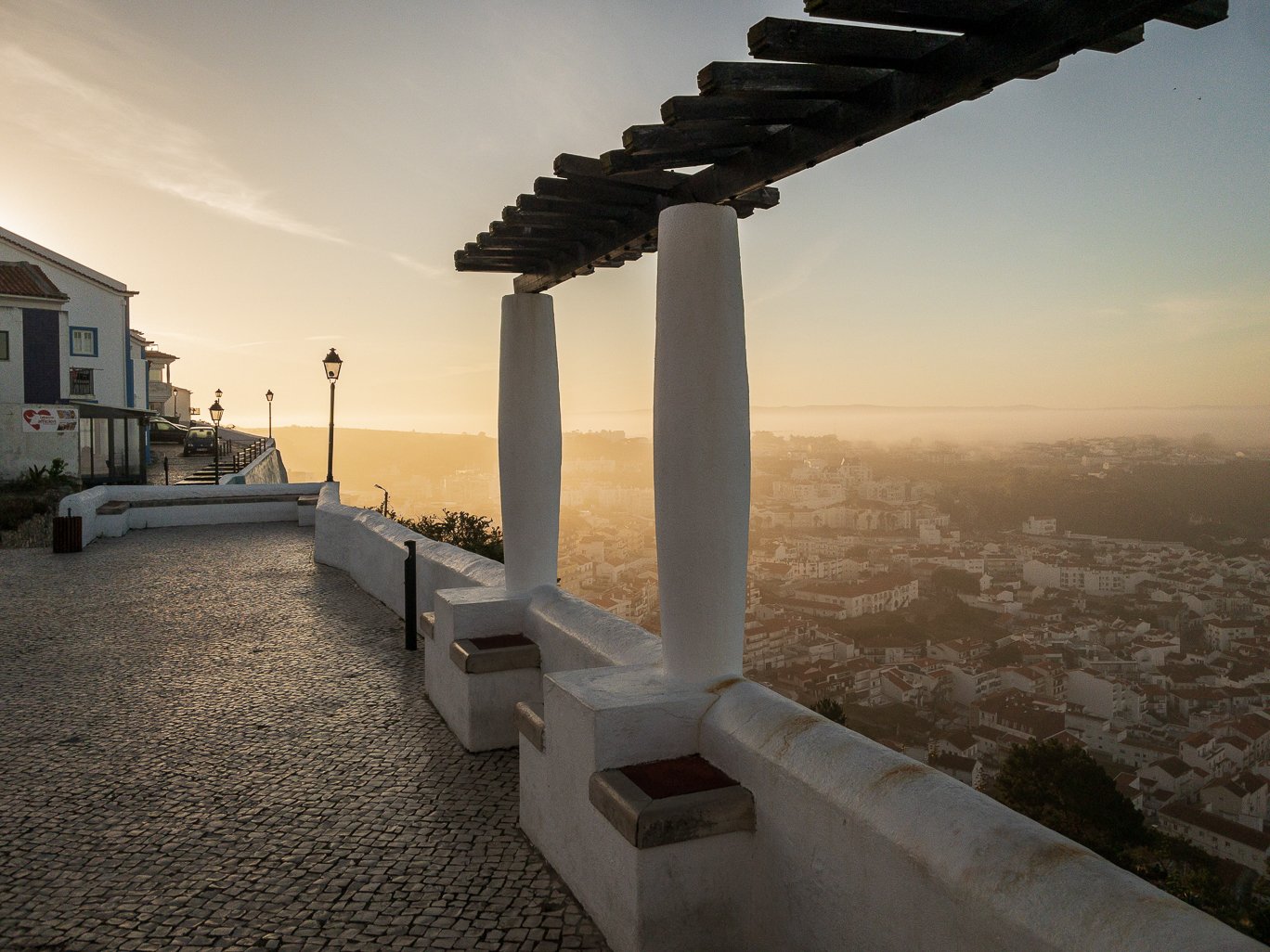
PORTUGAL
COUNTRY #9
FRANCELINA

Francelina’s Wisdom:
“Try to be happy and convey happiness to others”
“Tentar ser feliz e transmitir felicidade aos outros” (Portuguese)

About The Women of Nazaré
The women of Nazaré are easily recognizable in their traditional dress. The outfit consists of seven brightly colored petticoats, a white blouse and a scarf tied around the head. This attire is worn regardless of the occasion, whether it is a formal gathering or a day spent working on the family fishing boat. The exact reason for the number of the petticoats is somewhat unknown. Some say it represents the seven hills that surround Nazare, the colors of the rainbow, the days of the week etc. In the past, women would wait on the coast for their loved ones to return from a hard day's work at sea. To keep warm, they wore seven petticoats that could be draped over their body as protection from the cold wind. For generations, the women have worked alongside their fisherman husbands and fathers, bringing in catches that help to feed their families and support the community. In recent years, more and more women have been venturing out on their own, setting up their own businesses and becoming leaders in their field. They often gather together to sing and dance, frequently participating in local festivals. While they may not always be clad in seven petticoats today, they are renowned for their strength, beauty and spirit.

About Portugal
Portugal is located on the Iberian Peninsula and mainland Europe’s westernmost country. The first inhabitants of the region were the Celts, who arrived around 600 BC. They were followed by the Romans, who conquered the area in the 2nd century BC. After the fall of the Roman Empire, Portugal was ruled by the Suebi, a Germanic tribe. In 711 AD, the Moors invaded Portugal and quickly took control of the country. The Moors ruled Portugal for over 400 years, until it became an independent nation in 1143. In the 15th and 16th centuries, Portugal colonized Brazil and Goa, which helped to establish Portugal as a major global power. In the 18th century, Portugal lost much of its territory and influence as a result of the Napoleonic Wars. The 20th century was also a turbulent period for Portugal, with the country being involved in two world wars and undergoing a period of dictatorial rule from 1926 to 1974. Since then, Portugal has been a constitutional democracy and a member of the European Union.


